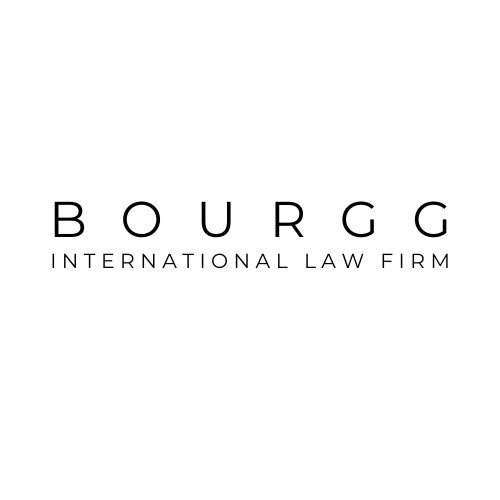Best Native People Lawyers in Providencia
Share your needs with us, get contacted by law firms.
Free. Takes 2 min.
List of the best lawyers in Providencia, Chile
About Native People Law in Providencia, Chile
Providencia is a district within Santiago, Chile, known for its diverse population and urban landscape. While most of Chile's Indigenous communities traditionally reside in rural areas, there are Indigenous people living in Providencia who maintain cultural traditions, community ties, and specific rights recognized under Chilean law. Chile’s Indigenous population primarily includes groups such as the Mapuche, Aymara, Rapa Nui, and Diaguita, among others. The main legal protection of Indigenous rights in Chile is the Indigenous Law (Law 19.253, known as Ley Indígena), which aims to preserve Indigenous lands, cultures, languages, and promote development and inclusion. In urban contexts like Providencia, Indigenous people may face unique challenges related to cultural identity, discrimination, land or housing rights, social benefits, intercultural education, and access to specialized government programs.
Why You May Need a Lawyer
Indigenous individuals and families in Providencia may encounter various situations where legal assistance is essential. Some of the most common scenarios include:
- Claiming recognition of Indigenous status or registration with CONADI (Corporación Nacional de Desarrollo Indígena)
- Resolving issues related to discrimination or violation of Indigenous rights
- Accessing social, educational, or health services meant for Indigenous communities
- Assistance in cultural or community organization legal matters
- Housing or tenancy disputes, especially where ancestral rights or Indigenous identity are concerned
- Employment discrimination based on ethnicity or cultural practices
- Inheritance and property matters involving communal or individual Indigenous assets
- Support with government-program applications and appeals
- Legal representation in civil or criminal matters where cultural considerations are important
- Mediation in cases where traditional customs need to be respected
A lawyer with experience in Indigenous law or knowledgeable about local statutes can help protect your rights, guide you through complex procedures, and represent your interests effectively.
Local Laws Overview
The foundation of Indigenous rights in Chile is established by Law 19.253, which recognizes various Indigenous peoples and seeks to preserve their cultures and support socioeconomic development. This law grants specific rights, including:
- Recognition of Indigenous identity through official registration
- Access to programs and subsidies for development, education, culture, and housing
- Protection against discrimination and measures to promote equality
- Support for Indigenous organizations and community associations
- Consultation in matters affecting Indigenous peoples, in line with ILO Convention 169 (to which Chile is a party)
Within the local context of Providencia, the municipal government may also have inclusion programs or policies to support Indigenous residents. Issues specific to urban Indigenous communities, such as integrating traditional practices or language preservation in schools, can have special legal relevance. When legal conflicts or concerns arise, interactions usually involve public offices such as municipality services, civil registries, and governmental agencies like CONADI.
Frequently Asked Questions
Who are considered Indigenous people under Chilean law?
Indigenous people are those who descend from recognized Indigenous groups, maintain cultural traditions, and self-identify as such. Legal recognition usually requires registration with CONADI.
What legal protections do Indigenous people have in Providencia?
They have protections against discrimination, rights to access specific programs and services, and recognition of cultural identity, among others established by national and international law.
How can I obtain official recognition as an Indigenous person?
You need to register with CONADI, providing proof of ancestry and a statement of self-identification. This can often be done at local municipal or government offices.
Are there government programs specifically for Indigenous people living in cities?
Yes. Programs cover education, health, housing, employment, and cultural promotion, and urban Indigenous populations are eligible if they meet eligibility criteria.
What should I do if I face discrimination based on my Indigenous status?
You can file a complaint with the National Institute of Human Rights (INDH) or consult a lawyer for support in pursuing action through courts or administrative bodies.
How do Indigenous rights relate to land or property issues in Providencia?
Most land claims focus on ancestral territories in rural areas, but property or tenancy issues may still arise for urban Indigenous people, especially concerning cultural use or inheritance matters.
Can my children receive intercultural or bilingual education in Providencia?
Some schools offer intercultural programs or language instruction if there is demand and support. Legal advocacy may help expand cultural education opportunities.
Are there local Indigenous organizations in Providencia?
Yes, several Indigenous associations and cultural groups operate within Santiago, including Providencia. These organizations often provide support and community resources.
What kind of legal aid is available for Indigenous people?
Governmental legal aid, NGOs, and specialized lawyers familiar with Indigenous law can provide assistance, often at reduced cost or free for those who qualify.
Does Indigenous status affect civil or criminal proceedings?
Judges may consider cultural background and Indigenous customs under certain circumstances. It is advisable to inform your legal representative about your status for appropriate handling.
Additional Resources
If you seek more information or help, consider reaching out to these bodies and resources:
- CONADI (Corporación Nacional de Desarrollo Indígena) - Main government body for Indigenous matters
- National Institute of Human Rights (INDH) - Provides guidance and receives discrimination complaints
- Municipality of Providencia - Offers local social programs and assistance
- Legal Aid Corporation (Corporación de Asistencia Judicial) - Free or reduced-cost legal services
- Indigenous associations based in Santiago
- Universidad de Chile Law Faculty and legal clinics with Indigenous law expertise
- Non-governmental organizations advocating for Indigenous rights
- Public Defenders’ Office for criminal defense
Next Steps
If you need legal assistance related to Indigenous matters in Providencia, Chile, consider the following steps:
- Identify your specific concern or issue and gather supporting documents (ID, registration, correspondence, etc.).
- Contact CONADI or your local municipality office to receive initial guidance and information on available programs and supports.
- Seek out a lawyer with experience in Indigenous or human rights law, or approach a legal aid provider for free or low-cost support.
- If facing discrimination, file a complaint with the INDH and document all relevant incidents.
- Engage with local Indigenous organizations for community support and information about your rights.
- Prepare a list of questions and desired outcomes to discuss during your legal consultation.
- Follow legal advice carefully and remain proactive in your case to achieve the best possible outcome.
Taking early action with the right legal support can help you uphold your rights and access opportunities reserved for Indigenous people in Providencia, Chile.
Lawzana helps you find the best lawyers and law firms in Providencia through a curated and pre-screened list of qualified legal professionals. Our platform offers rankings and detailed profiles of attorneys and law firms, allowing you to compare based on practice areas, including Native People, experience, and client feedback.
Each profile includes a description of the firm's areas of practice, client reviews, team members and partners, year of establishment, spoken languages, office locations, contact information, social media presence, and any published articles or resources. Most firms on our platform speak English and are experienced in both local and international legal matters.
Get a quote from top-rated law firms in Providencia, Chile — quickly, securely, and without unnecessary hassle.
Disclaimer:
The information provided on this page is for general informational purposes only and does not constitute legal advice. While we strive to ensure the accuracy and relevance of the content, legal information may change over time, and interpretations of the law can vary. You should always consult with a qualified legal professional for advice specific to your situation.
We disclaim all liability for actions taken or not taken based on the content of this page. If you believe any information is incorrect or outdated, please contact us, and we will review and update it where appropriate.









